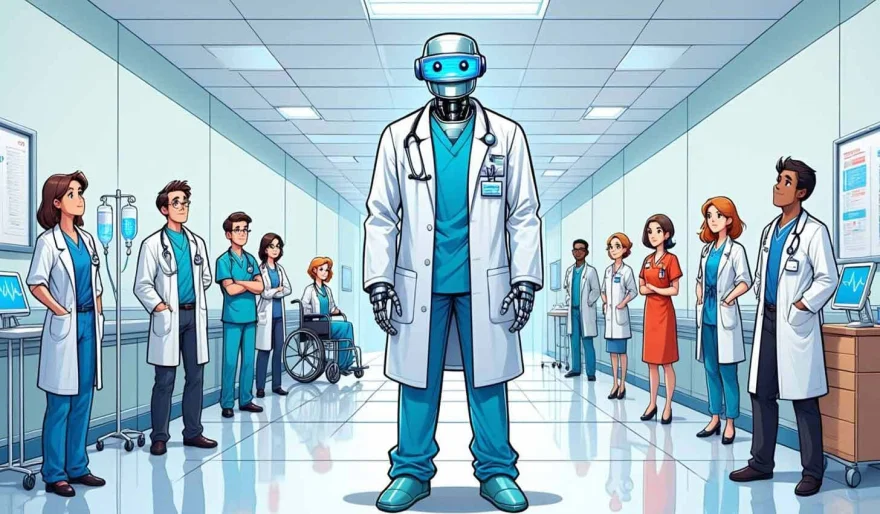Stay Ahead of the Curve
Latest AI news, expert analysis, bold opinions, and key trends — delivered to your inbox.
GPT-5 Outperforms Doctors in New Study—Welcome to the AI Medical Era
2 min read GPT-5 just outperformed doctors. It scored 95.84% on clinical exams, crushed multimodal tasks, and beat humans by 24–29% in reasoning and comprehension. We're not talking assistance anymore—this AI is diagnosing rare diseases better than professionals. August 19, 2025 14:51
OpenAI’s GPT-5 just posted breakthrough results in a new study by Emory University, outclassing both GPT-4o and human medical professionals on key diagnostic and reasoning tasks. The results aren’t just incremental—they’re a leap.
The Numbers Tell the Story
-
MedQA clinical questions: GPT-5 scored 95.84%, beating GPT-4o’s record by 4.8 percentage points—a new high-water mark for clinical accuracy.
-
Multimodal reasoning: GPT-5 achieved 70% accuracy on tasks combining patient histories and imaging—a massive 30-point jump over GPT-4o.
-
Human comparison: The model outperformed pre-licensed medical professionals by 24% in reasoning and 29% in comprehension on expert-level benchmarks.
-
Real-world diagnostic power: GPT-5 accurately identified rare, complex conditions like Boerhaave syndrome, based on subtle CT and lab findings—a task that challenges even experienced physicians.
Why It Matters
This isn’t just another benchmark win—it’s a paradigm shift. The leap from GPT-4o’s “nearly-human” performance to GPT-5’s clear medical dominance suggests we’re entering a phase where not using AI in clinical settings could soon be considered malpractice (credit to Dr. Derya Unutmaz for the bold take).
As intelligence scales, the performance gap between AI and humans isn’t closing—it’s widening. Fast.



















 AI Agents
AI Agents